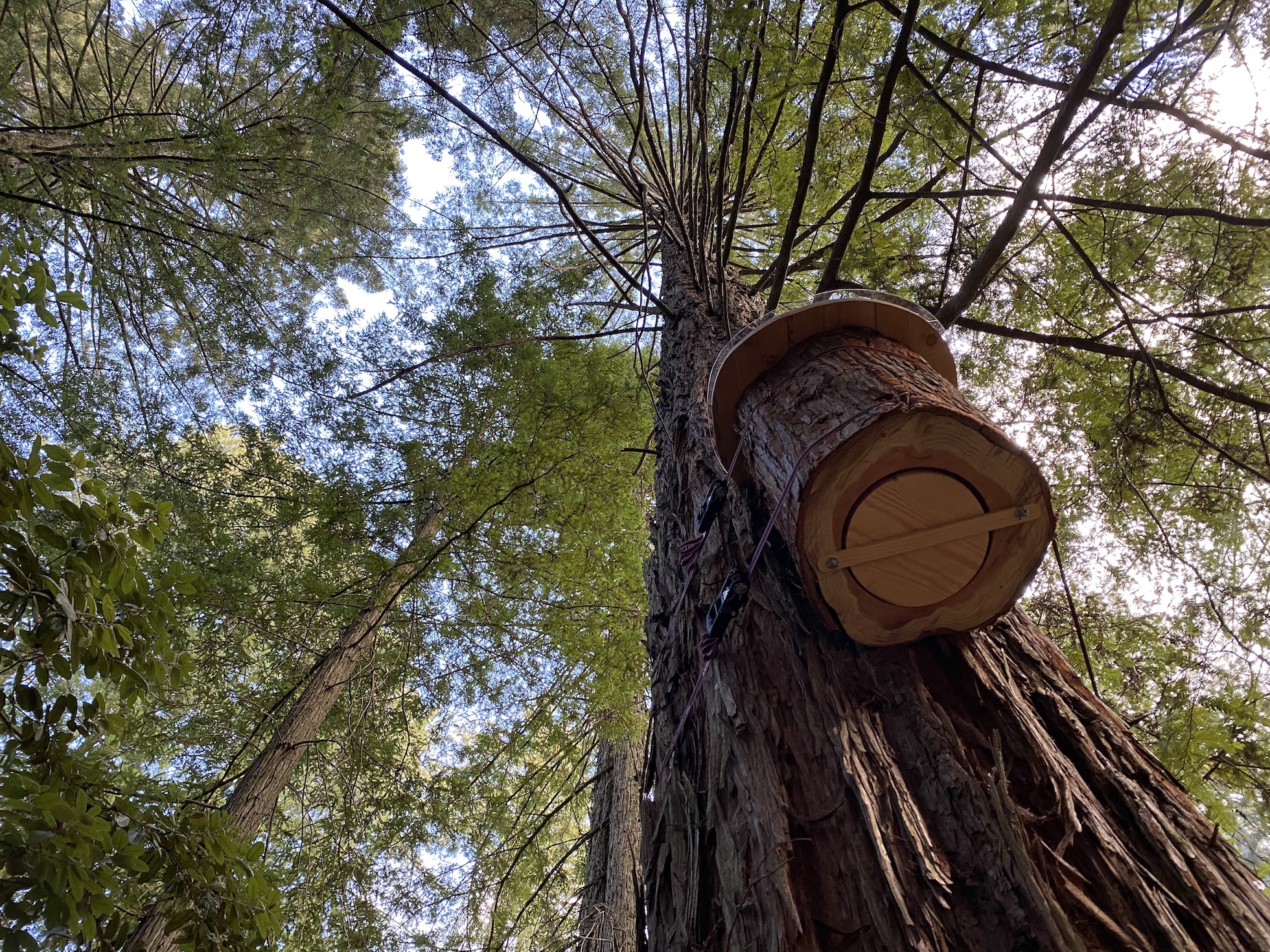Honeybees are an indicator species and a gauge of the health of the wider ecosystem, as they are intimately connected to the vast surrounding landscape of their nesting site (8,000 acres). They also take on the role of a trans-species catalyst for the procreation and balance of large parts of the biosphere. As a keystone species, honeybees require heightened protection and safeguarding and should be a fundamental consideration within any biodiversity plans and conservation efforts.
One cardinal focus of our work lies in the research, survey, rehabilitation, and protection of wild, unmanaged honeybees (apis mellifera). The categorization of wild unmanaged honeybees as cosmopolitan species is complex. As a neo-native and naturalized species alike, wild, unmanaged honeybees have become a co-constituent of diverse pollinator assemblages in the US.
The pioneering arboreal apicultural field outlines a framework of innovative practices and strategies. It promotes the re-alignment of apiculture with the fundamentals of wild apian ecologies and ethics. With a focus on self-willed ecological processes, wilding becomes a driver of change for the science of ecology and conservation.
LocApiary is a local watershed apiary and a program for self-sustaining networks. It is an initiative that follows a symbiotic narrative and a vision for the collaboration of landscape, honeybees & humans. The framework of LocApiary follows the natural life gestures of honeybees and integrates cutting-edge research in life sciences and traditional practices. In the life world of connectivity, the well-being of one is enmeshed in the well-being of others.




